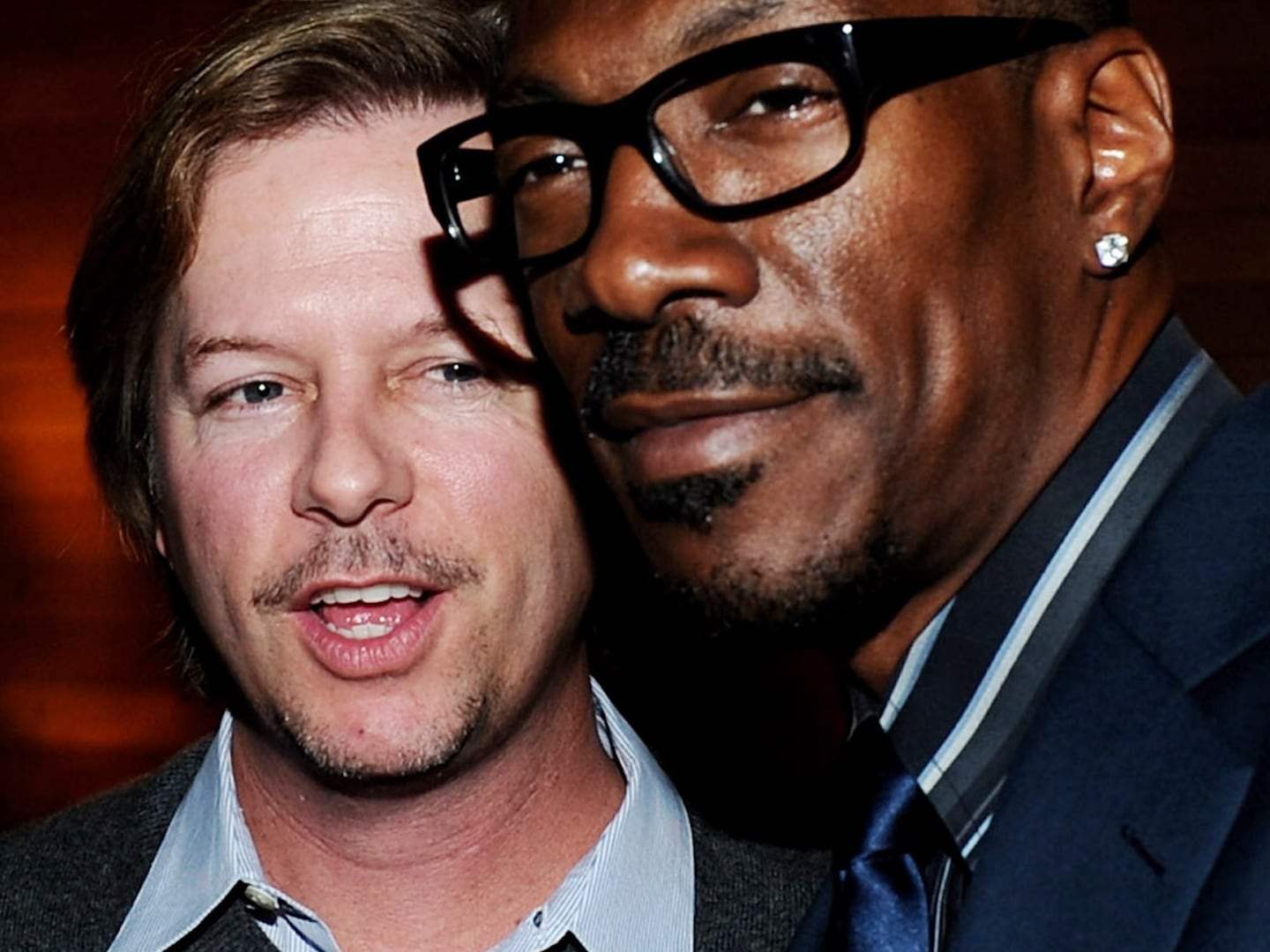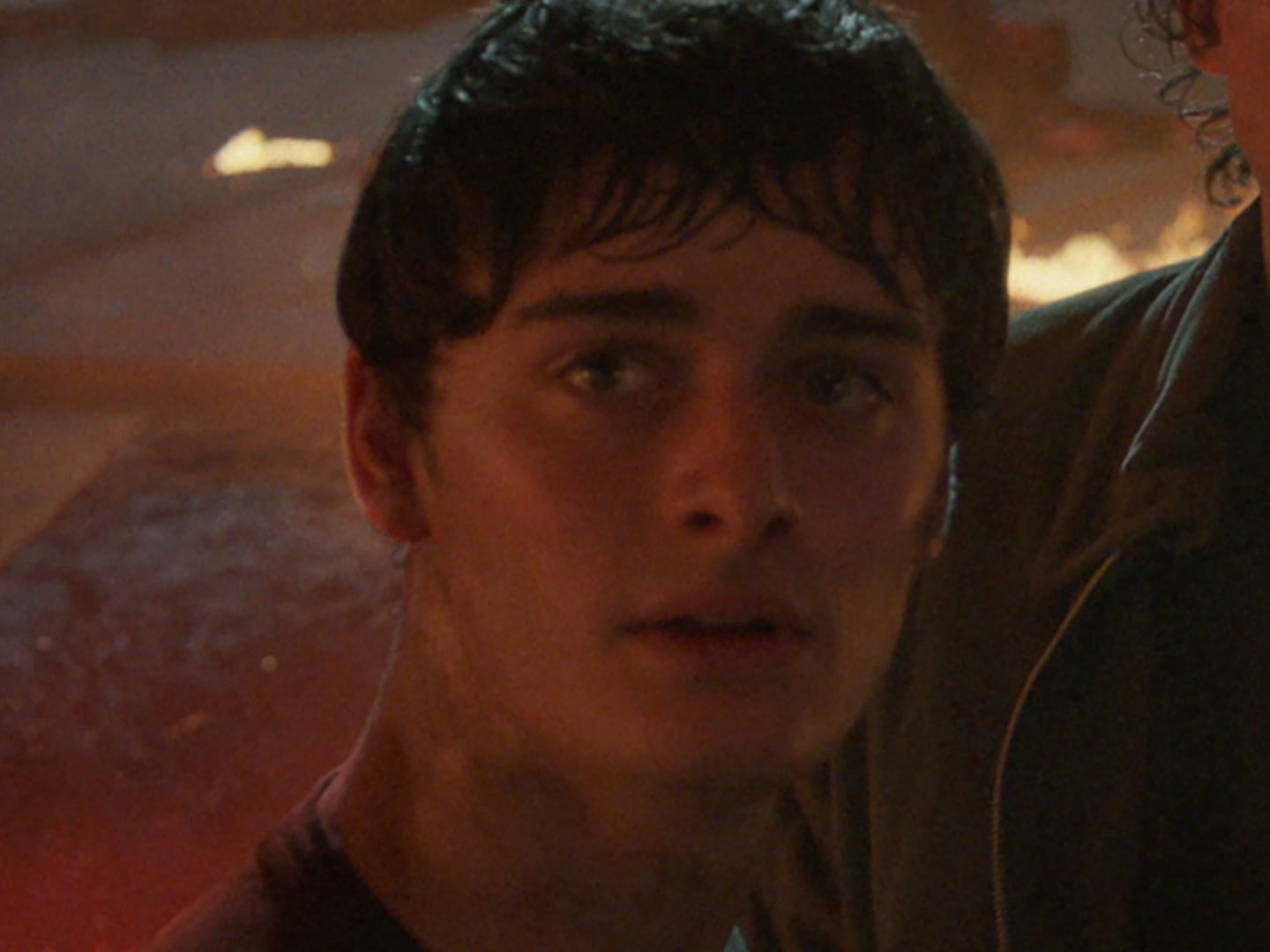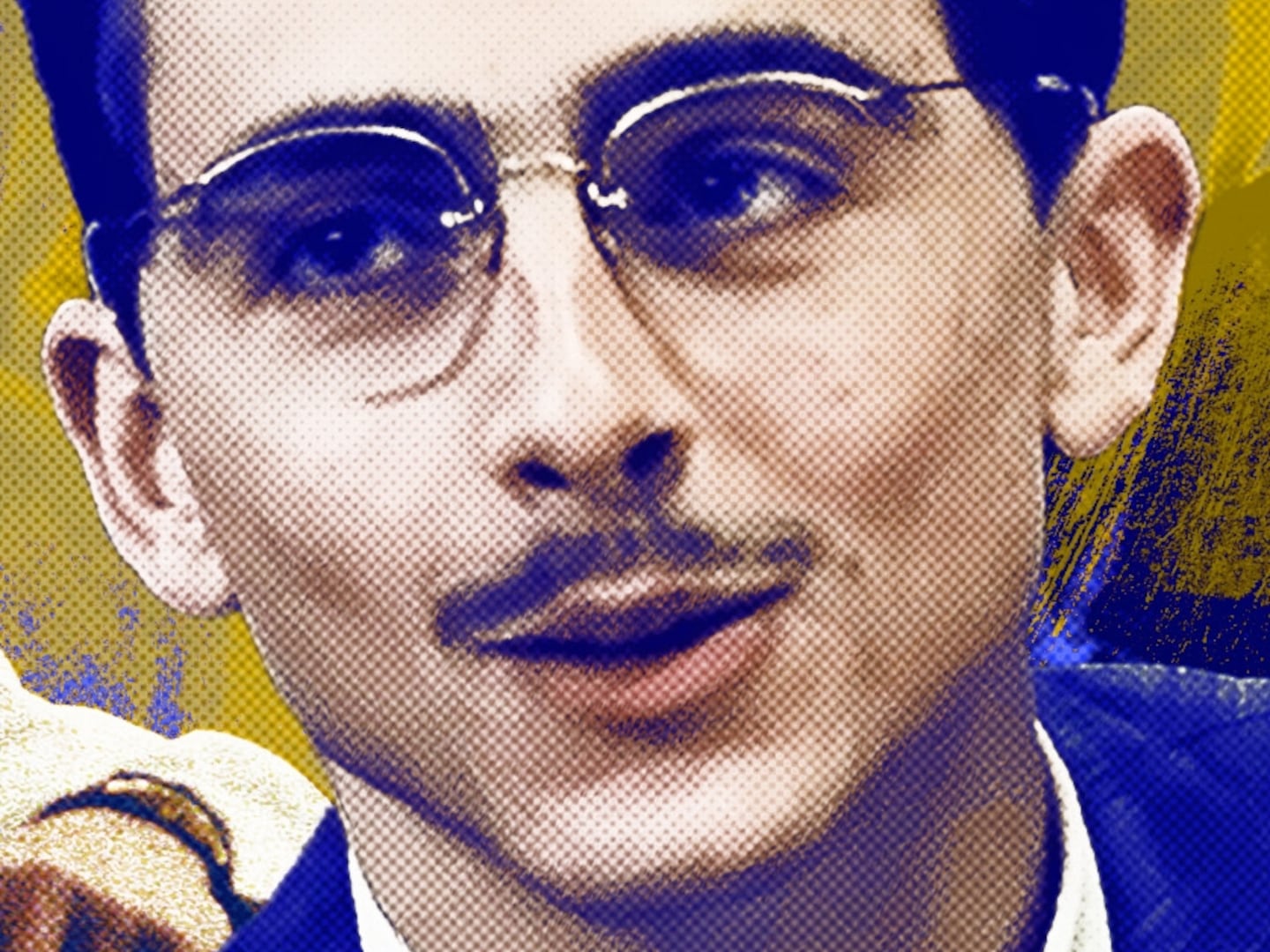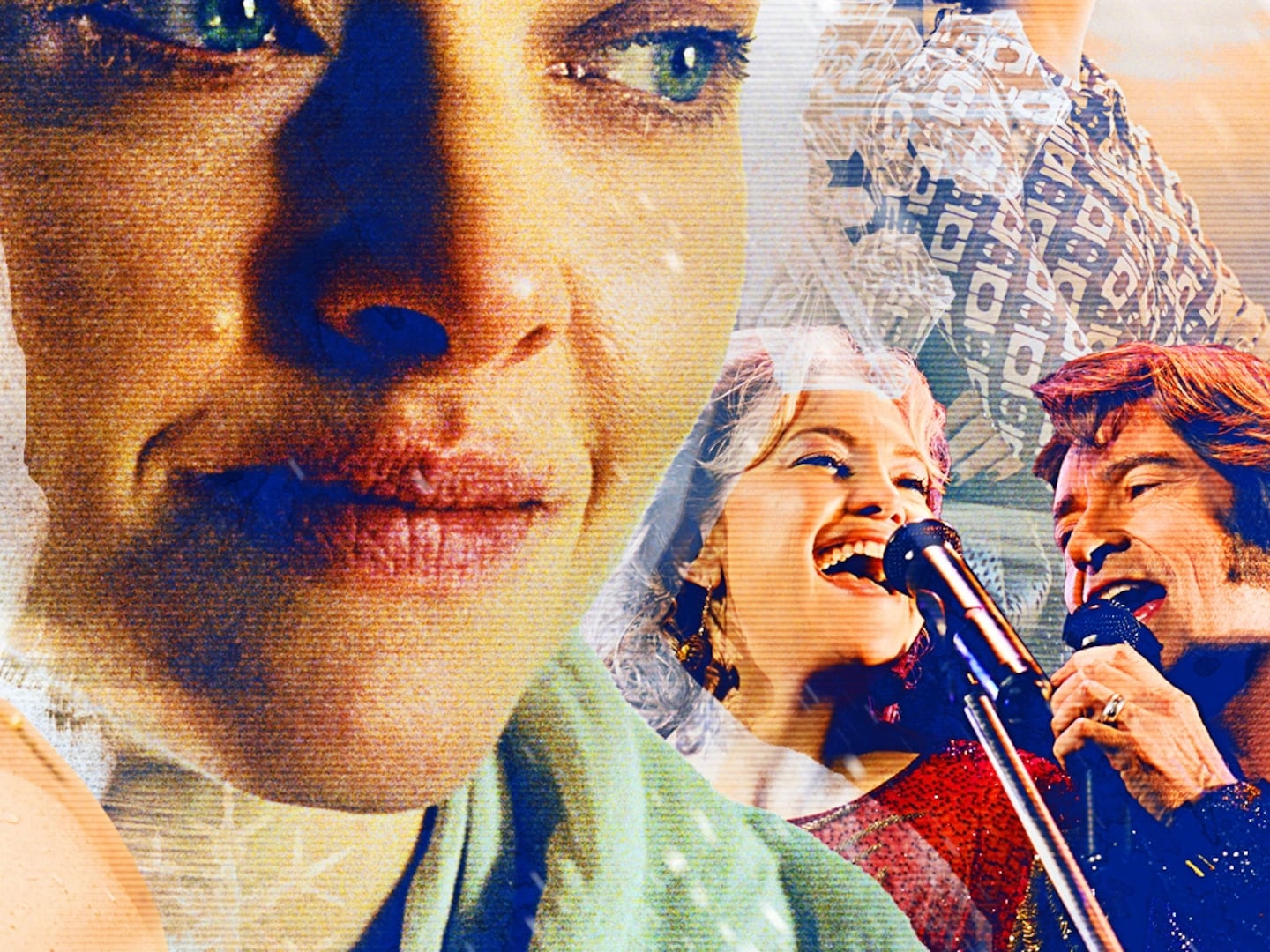Culturally speaking, we’re all being haunted. Things we thought were long dead are not only back, but making their presences known. Not only can we see them, but we’re also interacting with them. We even, much to our surprise, love them. It’s thrilling. It’s unexpected. It’s basically the plot of Ghosts.
The CBS comedy series, whose second season debuts on Thursday, is a driving force in what might be considered a television séance: Despite a decade-long trend that saw it maligned as antiquated, corny, and lacking in the quality and edge that series on streaming services and cable could provide, the broadcast comedy is popular again. It’s also actually good and—dare we say it—even cool.
Based on the BBC series (which you can stream on HBO Max), Ghosts centers around a married couple—Rose McIver’s Sam and Utkarsh Ambudkar's Jay—who inherit a centuries-old country house in New England. They decide to leave city living behind and turn the house into a bed and breakfast, much to the horror of the property’s current occupants: the ghosts of the people who have died there over the (many) years.
There’s Captain Isaac Higgintoot (Brandon Scott Jones), who died during the Revolutionary War and is salty to learn that his nemesis, Alexander Hamilton, is now famous. Román Zaragoza plays Sasappis, an indigenous Lenape who died on the land. Alberta (Danielle Pinnock) is a Jazz Age crooner who is convinced she was poisoned by moonshine, just before she could have been the next legendary singer.
Rebecca Wisocky is Hetty, the original lady of the manor, and Asher Grodman’s Trevor is the most recently deceased of the ghosts, a Wall Street bro who died of an overdose in 2000 while not wearing any pants. Looming in the background of all this, typically screaming, is Thorfinn (Devan Chandler Long), a Viking who was struck by lightning over 1,000 years ago.
They use their limited means of interaction with the living to try scaring Sam and Jay out of their plans—Alberta’s hum can cross over, Thor can make lights flicker, and Trevor can move objects if he concentrates hard enough. But things take an unexpected turn. After a near-death experience in the house, Sam wakes up to find she can now see and communicate with the ghosts.
They’re as shocked as she is—as is Jay. But once Sam proves to him that she’s not hallucinating, Jay is quickly convinced of her new ability. And suddenly, we’re all on board for the most unconventional of otherwise entirely conventional family sitcoms. In this case, that family happens to be made up of a living married couple and about a dozen ghosts whose lives spanned 1,000 years of American history. But like any family, they’re all forced to make peace with each other and their conflicting views and morals as they all live under one roof.
“It’s such a high-concept yet simple premise,” Joe Wiseman, who co-created the series with Joe Port, tells The Daily Beast’s Obsessed. Adds Port, “You can go to really interesting and substantive places. We can do episodes that deal with life and death and all kinds of deep subject matter without it being some crazy ‘special episode.’” And in between all of that, you have wacky characters act funny in period costumes.
Ghosts premiered last year, in the wake of Modern Family and Mom’s respective exits and the final season of Black-ish—the last three network comedies to experience the trifecta of support from critics and award shows, solid viewership numbers, and, at various points in their runs, actual buzz and cultural impact.
It’s not that there weren’t other sitcoms still going strong on broadcast; shows like Young Sheldon, The Conners, and The Goldbergs continued to produce respectable numbers, while the reboot of The Wonder Years won a 2022 Peabody Award. But it’s fair to say that, whatever their charms, those shows weren’t exactly lighting the zeitgeist on fire.

But over the last 12 months, critics and commentators were forced to stop the presses on their perpetual eulogies for the genre. Alongside that of ABC’s Abbott Elementary, which has become a cultural force and recently took home its first haul of Emmy Awards, Ghosts’ success proved that, even with streaming services sprouting like weeds and auteur-driven dark comedies as omnipresent as ever, the network sitcom was still very much alive.
What does success actually look like for a broadcast show these days? Tangibly, we can look to the numbers: Ghosts finished the 2021-22 season as the top-rated comedy series on broadcast, earned a 91 percent approval rating on Rotten Tomatoes, and picked up a slew of awards nominations from major critics groups. And spiritually—this is Ghosts, after all—people seemed to be buzzing about it in the places that matter.
Friends and family members caught on to it. New fans were converted after discovering it on streaming over the summer. There were memes. And given the cultural and circumstantial backdrop it was airing against (a politically polarized society still in the midst of a pandemic), its tone just seemed to be exactly right.
To understand how Ghosts has helped bring the genre back from the dead, we communed with the living. Ghosts creators Post and Wiseman, plus stars McIver and Ambudkar, spoke with Obsessed about what they think might be behind the show’s surprising success.
Adapting any hit international TV show in the age of streaming does, admittedly, seem ridiculous. It may even be, if one is being generous, cynical.
Sure, there have historically been examples of American takes on British gems that have been huge successes. (Hello, Michael Scott.) But when the original versions are readily accessible to everyone stateside, and viewers have proven more than eager to consume great international content, there’s something that seems less risky than it does being lazy about adapting an existing foreign show.
To an extent, “the Joes,” as everyone refers to Port and Wiseman, knew this. But they also recognized in Ghosts a series and concept that is perhaps more uniquely suited for an American adaptation than most other existing properties.
“This is actually a show that makes complete sense to adapt,” Wiseman says. “The British show is inhabited by a bunch of ghosts from throughout English history, people who lived at various periods. It makes sense to transplant the show to a different locale and then start populating it with archetypes from that country in that era.”
They landed on New England as the American setting, because they really wanted a Viking character and, in their research, learned that Vikings could plausibly have come through the Hudson Valley. But, Port says, given the unique history of the different areas of America and the people native to them, “you could have set a completely different show in five other parts of the country.” Wiseman laughs, adding, “Maybe someday we will.”
Before signing on for Ghosts, McIver had spent five seasons starring on The CW series iZombie. She was well-aware of the creative possibilities that present when you start dealing in the supernatural. But what sold her on Ghosts wasn’t the genre potential as much as it was the longevity.
Her character’s ability to see spirits wasn’t just a gimmick; it was a perfect TV narrative device. These ghosts span generations of American history, encompassing one of the most diverse casts of characters on TV. With that comes an endless combination of perspectives.

“Every time you put any two of them together, you get this totally new dynamic,” McIver says. “The show has the ability to, if something is starting to wane or you feel like something’s run its course, just put two different characters in a different room, and you have an entirely new kind of set of circumstances and collision of opinions to pull from.”
You might not be surprised to find, for example, that Hetty, Sam’s fourth-great-grandmother; Alberta, a Black woman who lived during Prohibition; Flower (Sheila Carrasco), a hippie who died trying to befriend a bear while high; and Sam, a journalist-turned-entrepreneur who grew up in the present day, all have differing opinions on feminism and how a woman should behave.
“We get to look at that kind of stuff with a more complex eye, which is pretty cool to be able to do on a half-hour sitcom,” McIver says.
There’s an endless playground of stories to mine from these ghosts, who have been frozen in time and are now discovering modernity. Situations range from misunderstanding technology to the possibilities of how a person could live their lives today, in ways they couldn’t when they were alive.
A fun plot in Season 1 revolved around the ghosts becoming addicted to a cheesy reality TV series, now that there are living humans around to subscribe to cable and turn the TV on. But when Thor watches a new episode without Sassapis, Sassapis gets angry. Thor must learn how to apologize, navigating a relationship dynamic he never had before.
“I’m sitting on three shows right now that I know I can’t watch without my wife,” Ambudkar says. “If I break open She-Hulk right now, it’s over for me. And vice versa. That’s a deeply relatable thing about modern culture, and hopefully we’re gently lightly touching on the absurdity of it. All the ghosts love watching TV, and they obsess over TikTok and Alexa and the modern technology that makes our lives easier but makes human connection harder.”
The human connection is the point of it all, even though we’re talking about ghosts. They may be trapped in the same old-timey outfits and hairdos from when they died, but, thanks to the presence of Sam and Jay, they begin to evolve. Alberta learns to let her guard down. Hetty discovers female empowerment. Isaac, a man who has been closeted for over 200 years, starts the process of understanding who he is and coming out.
There’s a poignance to all of this, which is on trend at a time when Schitt’s Creek, Ted Lasso, and Abbott Elementary usurp “comedies” about assassins and alcoholic flight attendants as the most talked-about and—if the Emmys are any indication—admired shows on TV.
“We saw it with Ted Lasso, which came out ahead of us and had a very feel-good, positive message that immediately caught on,” says Wiseman. “So I do feel like part of this has been a little bit of luck. We were just making the show we wanted to make and one that we thought was true to the spirit of the original. It just coincided with a time where people were yearning for that positivity.”

“Everything’s kind of cyclical, in comedy especially,” Port says. “There was a period when dramedies were the king in comedy. And those are still popular. But, with all the seriousness of everything that’s going on, I think people want something that's actually heartfelt and also funny. I think Ghosts, the British version and our version, brings all those qualities.”
Even if the experience is not entirely conscious—or something that was intentional or manufactured—when you think about the nuts and bolts of what Ghosts is, it makes perfect sense that it’s connecting with viewers now.
The idea of people crammed into a house together, isolated away from society, and having to deal with each other’s neuroses all while confronting fear and mortality…well, it hits home.
“I think a lot of those thoughts were in people’s minds,” McIver says. “Nobody wants to be hit over the head with that right now. But I think it makes sense that anything that in a comedic way is reflecting back some of the fears that you have feels like resonant material.”
She also connects that to the way our extreme political polarization has fractured so many families. She’s experienced this in her own life, she says, with many of her friends now having fraught relationships with relatives because of the events of the last two years.
“We watch people wrestle with their very specific viewpoints that they’ve had for up to 1,000 years on this show,” McIver says. “There’s something hopeful when you watch that as an audience. Like, oh, there is a possibility for my family to resolve the tension and for people to have character growth and for us to see each other as individuals who are just trying to overcome.”
The mere existence of the show itself, in a similar way to Abbott Elementary and its surge in popularity, may also be responsible for some of that healing.

As Utkarsh says, Ghosts is not a series like Squid Game or Ozark, as popular as they may be. Ghosts is a show that his entire family can watch together. “It’s not sexy to be like, oh, mom, dad, grandma, the kids, and the dog are all sitting down together, having dinner, and watching Ghosts. We’re not the sexy choice, so to speak, but we are the popular one, because we can reflect what’s going on in most homes.”
“The thing that makes this show special is the response of the audience,” he says. “It’s not the media’s show. It’s not reporters’. It’s not the critics'. It’s the people’s show and everywhere I go the love that people feel comfortable expressing for the show is a genuine joy. It’s not this rabid, charged energy of like fangirling or fanboying. It’s just appreciation. It’s like, ‘Dude, we watch you every week. My family loves you. Thank you.’”






